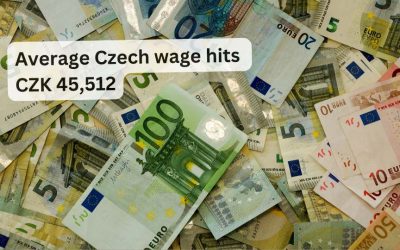Czech inflation fell into single digits in June and the trend continued in July, coming in at 8.8% on a year-on-year basis. If that’s the good news, the bad news is that it’s the ninth worst rate of 41 European countries. Jakub Matěju, a Czech National Bank official, says the country is still on track to reach the regulator’s goal of 2% inflation during 2024. He predicts that y-o-y inflation will continue to fall until September, after which the pace of the decline will slow. That’s because the government intervened in the fall of 2022 to reduce the price paid for energy by households and companies.
Seznam.cz notes that Hungary is currently fighting 17.6% inflation, Serbia’s rate is 13.7% while war-torn Ukraine prices are 11.3% higher than in 2022. Why is Czech inflation so high? It’s likely the same thing that Petr Kymlička (of Moore Czech Republic) told Seznam could threaten the CNB’s ability to reach 2%. “It’s the very low rate of unemployment that has no precedent in the EU,” he says. “The labor market simply doesn’t reflect the stagnation of the Czech economy and the poor situation in most of its industrial sectors.” Unemployment is stuck (in the eyes of macroeconomists) at 3.5%, meaning that employers have to compete via wages to fill job openings. Gross wages rose 9.1% in June, says Kymlička.






